Uriel Orlow: Mafavuke’s Trial and Other Plant Stories
–
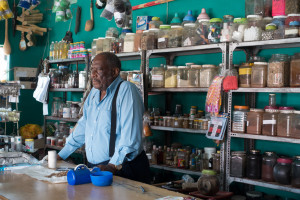
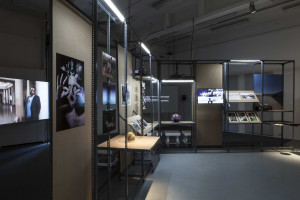
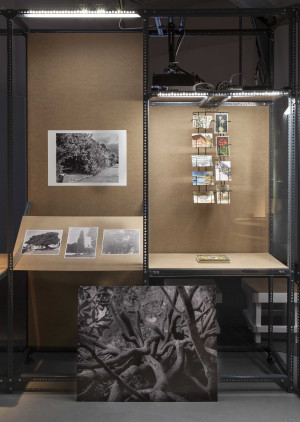
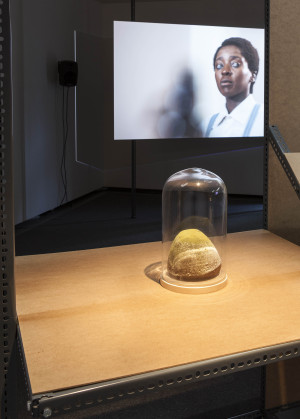
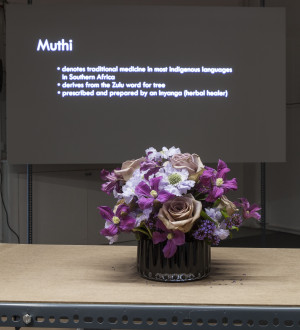
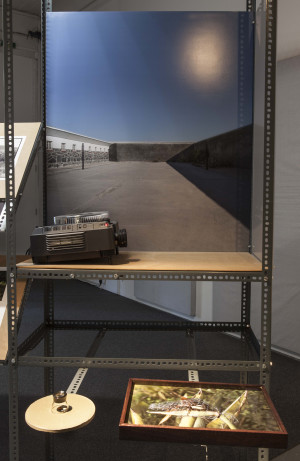
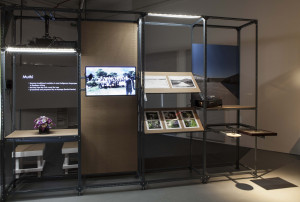
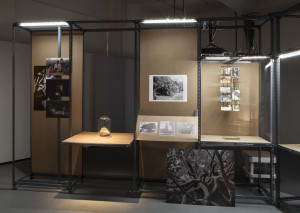
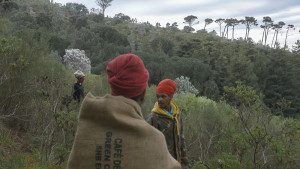
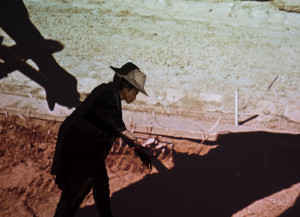
In 2016 The Showroom presented a major new commission by London-based artist Uriel Orlow, which looked to the botanical world as a stage for politics at large through film, photography, installation and sound.
Working from the dual vantage points of South Africa and Europe, the project considered plants as both witnesses and actors in history, and as dynamic agents – linking nature and humans, rural and cosmopolitan medicine, tradition and modernity – across different geographies, histories and systems of knowledge, with a variety of curative, spiritual and economic powers.
Central to this was Orlow’s two-screen film The Crown Against Mafavuke, based on a South African trial from 1940. Mafavuke Ngcobo was a traditional herbalist who was accused by the local white medical establishment of ‘untraditional behaviour’. The film explores the ideological and commercial confrontation between two different yet intertwining medicinal traditions and their uses of plants, with slippages across gender and race further questioning notions of purity and origination. Filmed at the Palace of Justice in Pretoria and at rural and urban sites in Johannesburg, the Western Cape and Kwazulu-Natal the film installation touches on larger issues around indigenous knowledge and alternative medicine in post-colonial contexts.
Additional works by Orlow and invited artists were displayed in an accompanying modular structure – a conceptual herbarium – in which each work acted as a ‘specimen’ highlighting different histories and politics of plants. Soundworks, photographs, a slide projection and video by Orlow highlighted botanical nationalism and other legacies of colonialism, plant migration and invasion, flower diplomacy during Apartheid, the garden planted by Mandela and his fellow inmates on Robben Island prison as well as the role of classification and naming of plants.
Through the work of other artists, this multi-vocal archive opened up dialogues between South Africa and other parts of the continent. David Goldblatt’s iconic photograph of the remnant of a hedge planted by the Dutch in 1660 to keep the indigenous Khoikhoi out of the first European settlement in South Africa acts as a botanical premonition to the marks left in the landscape by the hundred year war of resistance by the Xhosa against the Boer and British (1779-1879) depicted in Cedric Nunn’s photographs.
These images in turn are contrasted with Kapwani Kiwanga’s reconstruction of a floral arrangement found on the negotiation table during the talks between the delegation of The Liberation Front of Mozambique (Frelimo) and the Portuguese on 7 September 1974 that led to Portugal’s formal recognition of Mozambique’s right to independence.
A series of photographs by Philippe Zourgane showed how vegetation is used as way to construct zones of autonomy by descendants of slaves on Reunion Island off the East African coast, while another series of images by South African collective Subtle Agency (Julia Raynham, Bradley van Sitters and collaborators) conveyed something of the metaphysical experience of using plants for healing in the Western, Eastern and Northern Cape provinces of South Africa.
A Moringa Cake by Cooking Sections (Daniel Fernández Pascual & Alon Schwabe) made reference to a new kind of hedge, the planned construction of a Great Green Wall to slow down desertification of the Sahara at a transnational level by planting a ten-mile-wide hedge of drought-resistant plants, one of which is the moringa tree (a.k.a. the never die plant).
In the context of this project, Orlow started working in The Showroom’s neighbourhood researching local medicinal plant use, which informed the development of a cross-cultural medicinal plant garden at 60 Penfold Community Hub (our neighbouring care home) and an accompanying manual. The garden was constructed in collaboration with gardener Carole Wright, Church Street Bengali Women’s Group, Penfold Hub Gardening Group, and Penfold Hub residents and centre-users.
Uriel Orlow’s Mafavuke’s Trial and Other Plant Stories was commissioned by The Showroom (London) in association with Parc Saint Léger, Contemporary art centre (France), Bluecoat (Liverpool), and Tyneside Cinema (Newcastle upon Tyne). The project is supported by a Wellcome Trust Arts Award, Arts Council England, Stanley Thomas Johnson Foundation, Pro Helvetia – Swiss Arts Council, A4 Arts Foundation, Film London Artists’ Moving Image Network (FLAMIN) and The Embassy of Switzerland in the United Kingdom.
Related
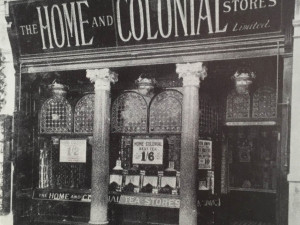
Event
Uriel Orlow and Cooking Sections: Better, More Exotic and Half a Penny Cheaper
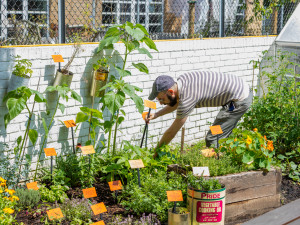
Event
Medicinal garden launch and tour with Uriel Orlow and Michael Heinrich
, –
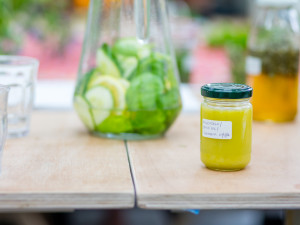
Event
Putting the Medicinal Garden to Use
, –
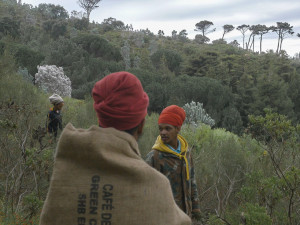
Event
Symposium: Theatrum Botanicum and Other Forms of Knowledge
, –

Audio
Symposium: Theatrum Botanicum and Other Forms of Knowledge